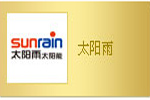The other side of foreign brands
Updated: 2011-11-03 14:55
By Huang Xiangyang (China Daily)
|
|||||||||||
Many Chinese people love foreign goods, especially reputable brands. The wealthy flock to Paris, New York and Hong Kong snapping up goods ranging from bags and jewelry to milk powder.
Some critics suggest this belief that "the moon shines even brighter in a foreign land" reflects a loss of self-esteem as a result of repeated humiliations inflicted upon China by Western powers since the Opium War (1840).
Others attribute the blind worship for everything foreign to memories of material scarcity in the domestic market and Chinese companies' limited experience in modern marketing following the country's three decades of isolation from the outside world before the reform and opening-up policy was launched in the late 1970s.
The liking for foreign products has prevailed to such an extent that some Chinese brands adopt a foreign name to attract buyers. In a recent case of commercial fraud, Da Vinci, a supposedly high-end "Italian" furniture brand, was found to be actually based in Guangdong. The company exported its products to Italy then re-imported them to China.
This sounds absurd. But a lot of Chinese people buy into such tricks, which may partly explain why so many Chinese brands have adopted foreign names. Now nearly 80 percent of Chinese garments bear foreign-sounding names to cash in on this strange psychology.
However, consumers insist that they buy foreign goods, because they trust them. This is especially true of food products, following a spate of food safety scandals in China in recent years, including melamine-tainted baby formula, clenbuterol in animal feed, which makes the meat learner, and gutter oil recycled to be used in restaurants.
Yet a series of recent scandals concerning foreign multinationals might have the potential to change the attitude of Chinese consumers toward foreign brands. Negative stories about foreign brands depict a picture at odds with the public perception, and foreign brands that used to conjure up positive images have now come under the scrutiny of dubious customers.
People reacted with disbelief when they were told that Walmart stores in Chongqing used deceptive labels for organic pork and sold substandard food, even after being fined repeatedly for misconduct. They find it hard to link the trendy iPad and iPhone with the polluted waste and toxic metals that are discharged into surrounding communities in Hubei and Jiangsu provinces during their manufacture. Their stomachs squirmed after they learned the delicious pork broth at Japanese noodle chain restaurants Aijisen Ramen was made with instant seasoning. The list of scandals goes on to include dairy producer Nestl, fast food giants KFC and McDonalds's, as well as the clothing brands Zara and Gucci - to name just a few - all of which were found to be committing wrongdoings ranging from cheating customers with poor service and shoddy products to violating China's labor laws.
That foreign brands are not necessarily a guarantee of good service and quality has been a culture shock. Chinese consumers are realizing the fact that in pursuit of profits, foreign multinationals can also act unethically. For the first time in many years, Chinese customers have had a chance to see the other side of foreign brands and reflect on their long-held worship of them.
Some foreign brands argue that the scandals have been magnified out of proportion. After all, pork sold as organic when it did not meet the organic standard is not potentially fatal, as is the case melamine-tainted baby formula. Besides, it is thanks to the many loopholes in China's law enforcement, labor rules and environmental standards that these multinationals have changed some of the practices they have to adopt at home.
But if they cling to this mentality of treating Chinese customers as second-class consumers, they are not only debasing themselves morally, they will also lose their advantage in the market, as Chinese consumers will no longer trust them.
The author is a writer with China Daily.










